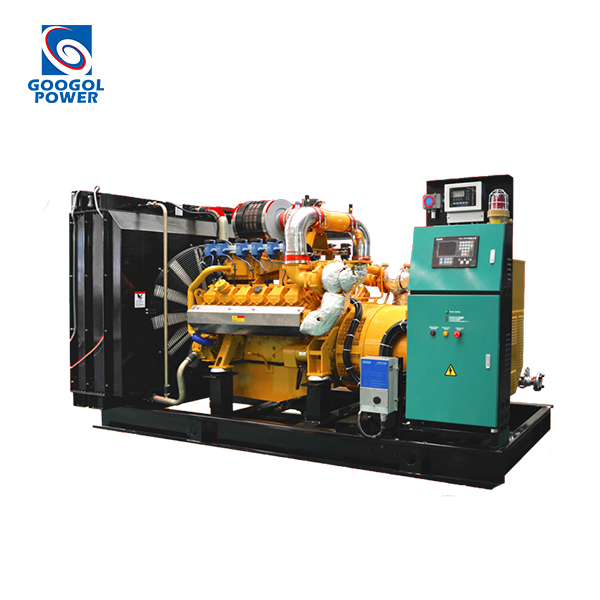Diesel Engine
Generator Set
Gas engines have certain advantages in energy utilization and emission control.Their thermal efficiency performance is directly related to operating costs,fuel consumption and system output capacity.There are many factors that affect the thermal efficiency of gas engines,mainly involving multiple aspects such as the combustion process,gas compression ratio,fuel quality,intake system design and ignition control strategy.
First,the compression ratio has a direct impact on thermal efficiency.Generally speaking,the thermal efficiency of a gas engine increases as the compression ratio rises.This is because a high compression ratio helps enhance the work capacity of gas expansion during combustion,thereby increasing the effective work released per unit of fuel.Given the relatively good anti-explosion performance of gas,some engines can be designed with a higher compression ratio under the condition of maintaining safe operation,thereby optimizing thermal efficiency.

Second,the structure of the combustion system and the uniformity of the mixed gas are also among the key influencing factors.Gas engines mostly adopt premixed combustion forms.The more uniform the mixture of fuel and air is,the more complete the combustion process will be,which helps to improve the thermal conversion efficiency.Factors such as the design of the combustion chamber,the distribution of nozzles,and the flame propagation path all have an impact on the uniformity of the mixture and the combustion rate.
Third,the temperature and pressure management of the intake system have a direct correlation with combustion efficiency.Gas engines that adopt turbocharging and intercooling technology increase the combustion density by compressing the intake air,indirectly enhancing the energy release per unit time.On this basis,reasonable control of the intake air temperature can suppress the occurrence of knocking,enabling the engine to operate at a more optimal ignition time and thereby enhancing the overall thermal efficiency.
Fourth,the control strategy of the ignition system also affects the thermal efficiency performance.Modern gas engines widely apply high-energy electronic ignition systems and multi-point injection technology,which can more accurately control ignition timing and energy input,and improve combustion integrity.Appropriate pre-ignition helps increase effective work while reducing the impact of unburned gas on thermal efficiency.
Fifth,the stability of fuel composition and quality cannot be ignored either.Gas engines commonly use various gases such as natural gas,biogas,and syngas as fuels.The calorific value,moisture content,and impurity content of different fuels directly affect the efficiency of calorific value release during combustion.High-purity and low-water-content gas can significantly enhance energy release per unit mass,reduce the risk of carbon deposition,and indirectly improve thermal efficiency.